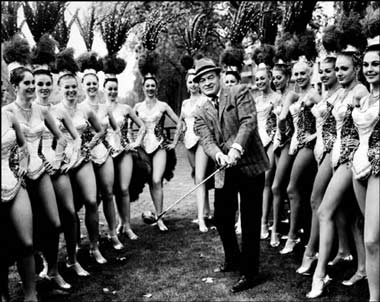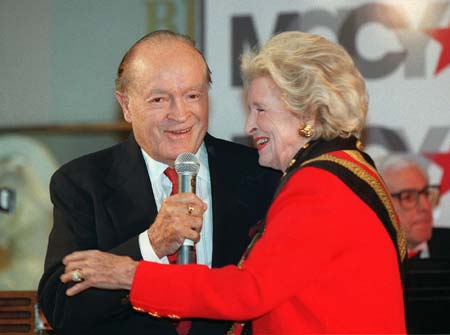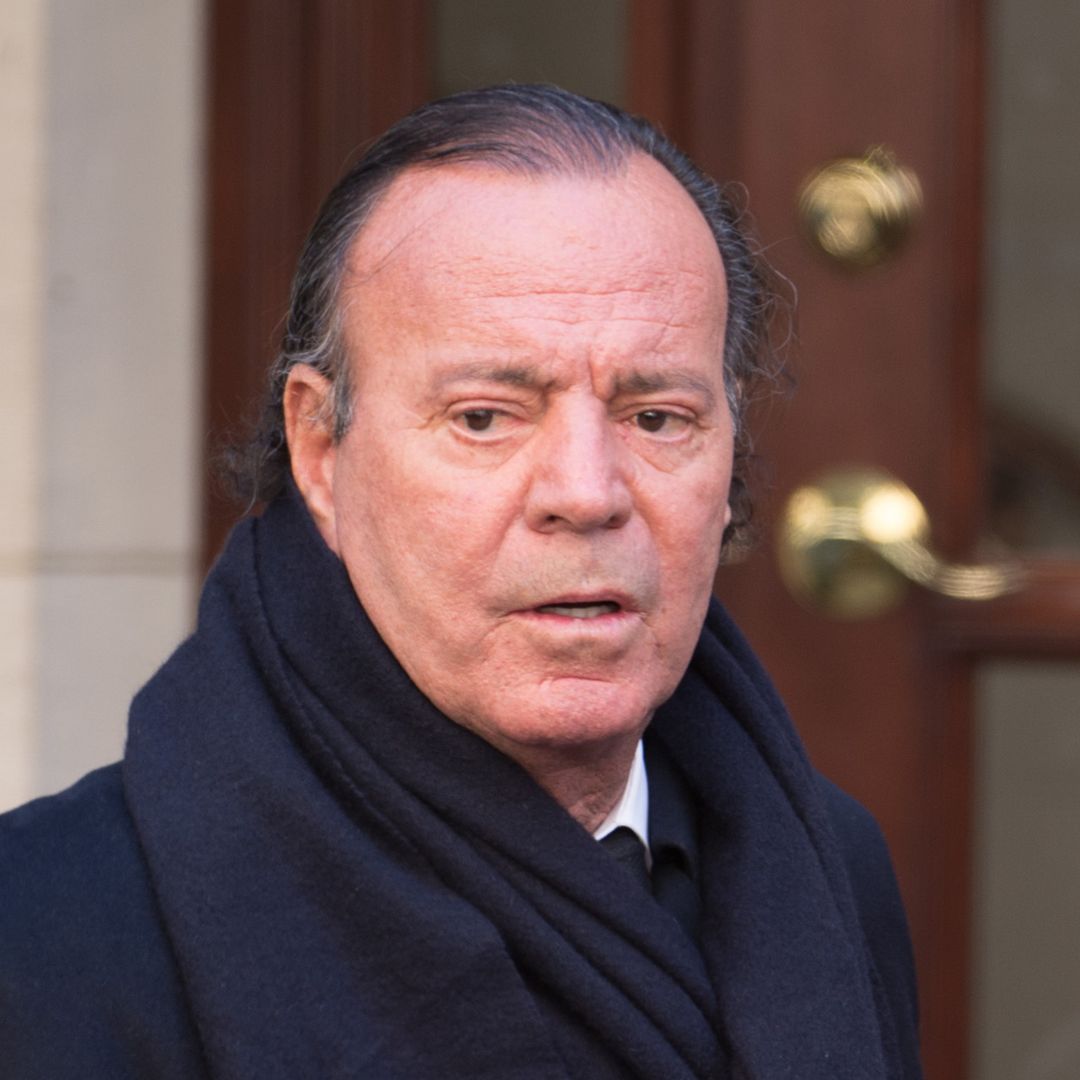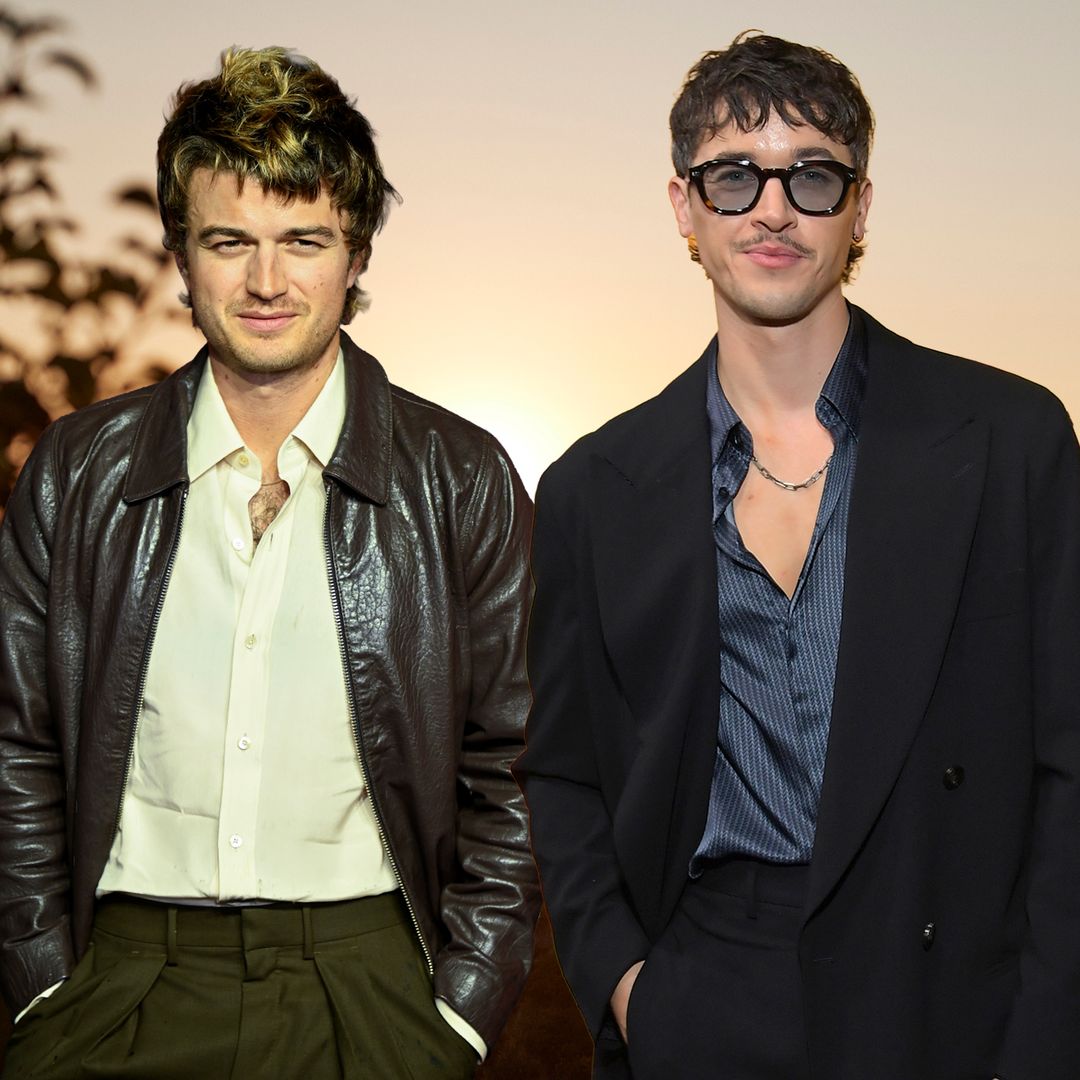Legendary funnyman Bob Hope has died of pneumonia at his home in Toluca Lake, California. His publicist said that he was surrounded by his family when he passed away on Sunday night.
The sad news comes shortly after the iconic entertainer celebrated his 100th birthday. Tributes and celebrations were staged all around America on May 29 to mark the centenary of one of the world's best-loved entertainers.
Bob was best known as the wise-cracking guy who was always ready to fly off to entertain the troops. In the history of show business, no other individual travelled so far to bring laughter to so many, nor for so long. Whether it was on stage or screen, radio or TV, Bob joked his way through every decade of the twentieth century – from impersonating Charlie Chaplin in front of a fire station at the age of six to celebrating an astonishing 60 years with NBC in 1996.
The fifth of seven sons, Bob Hope was born Leslie Townes Hope in London in 1903, his father a stonemason and his mother an aspiring concert singer. When Bob was four, the family decided to seek their fortune in America and settled in Cleveland, Ohio. The youngster got started in vaudeville in 1924, and rapidly scaled the showbiz ladder with his innovative mix of wise cracks, topical social and political commentary – and the help of some of the best gag-writers of the time.
At 30, he got his first big break in the successful Broadway musical Roberta. A co-star introduced him to a young singer, Dolores Reade, and after a brief courtship the pair married in 1934. Five years on, he had his own hit radio show and a movie contract with Paramount.
The format he developed for his radio broadcasts – topical monologues, skits and musical acts – set the standard for programmes of the time and was widely imitated. Alternatively self-confident and self-effacing, brash and retiring, his persona struck a chord with Depression era audiences and his weekly show was soon ranked number one by American listeners.
In all, Bob starred in more than 50 films, but most people will remember him for his screwball comedies. His motion-picture debut came with The Big Broadcas t Of 1938 in which he and Shirley Ross sang the melancholy ballad Thanks For The Memory – the song which was to become his signature tune. A string of light comedies followed before the funnyman finally hit the jackpot with 1939’s The Cat And The Canary.
In 1940, he teamed up with Bing Crosby and a sarong-clad Dorothy Lamour to make Road To Singapore. The friendly rivalry, easy rapport and frothy ad-libbed repartee between the two men proved extremely popular, and the film was a major hit. Over the next two decades Bob and Bing found themselves on the roads to Zanzibar, Morocco, Utopia, Rio, Bali and Hong Kong.
Busy as he was with his film work, Bob continued his radio shows and embarked upon an astonishing television career which spanned four decades. When the great entertainer presented his first TV special on NBC in 1950, few could have envisaged that he would go on to deliver 282 more before calling it a day in 1995. His Christmas specials – many featuring broadcasts of his shows for military personnel – became a festive tradition.
He began entertaining US troops overseas during the Second World War, a service that was to take him to Korea in the 1950s, Vietnam in the 1960s and – when he was nearly 90 years old – to the Persian Gulf. Many of his humanitarian awards stem from these performances.
However, while he spent many years hosting the Oscar ceremony, the most prized Hollywood gong of all, an Academy Award, eluded him, although he eventually received four honorary trophies recognising his humanitarian work and contribution to the motion picture industry. The decision to present him with a Presidential Medal of Freedom confirmed his status as a national institution.
He is survived by his wife, Dolores Reade Hope, his four children, Linda, Anthony, Honora and William, and four grandchildren.
 Photo: © Alphapress.com
Photo: © Alphapress.com
 Photo: © Alphapress.com
Photo: © Alphapress.com
 Photo: © Alphapress.com
Photo: © Alphapress.com
 Photo: © Alphapress.com
Photo: © Alphapress.com







